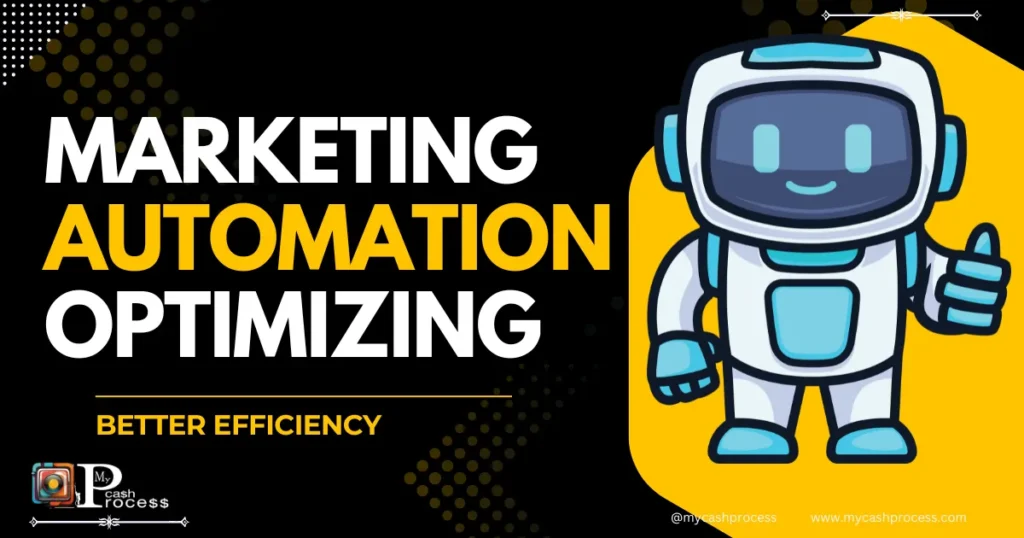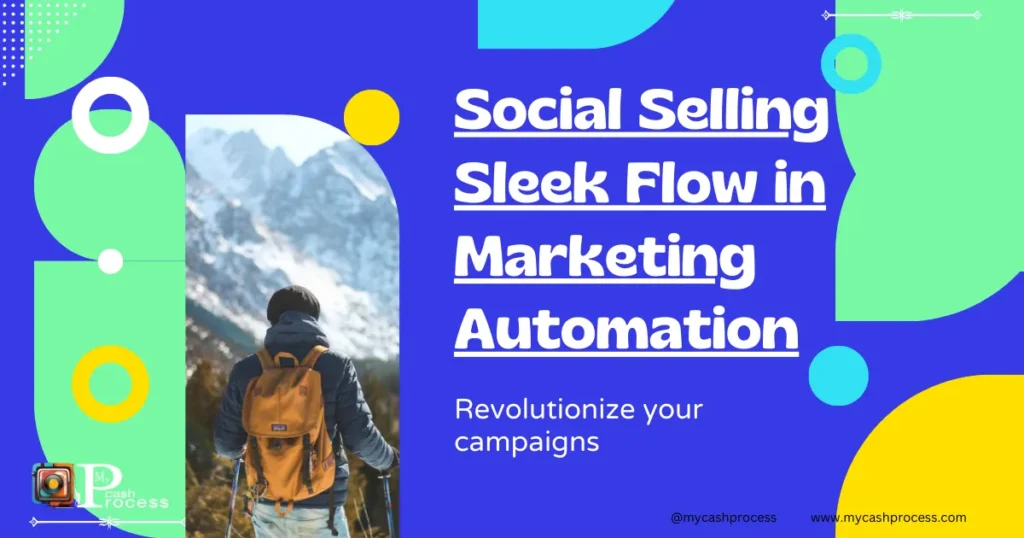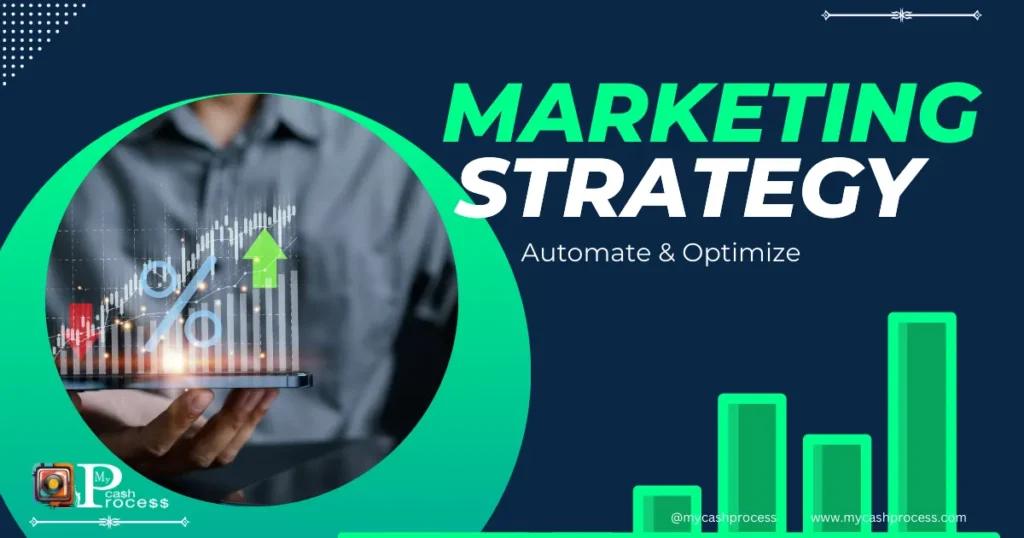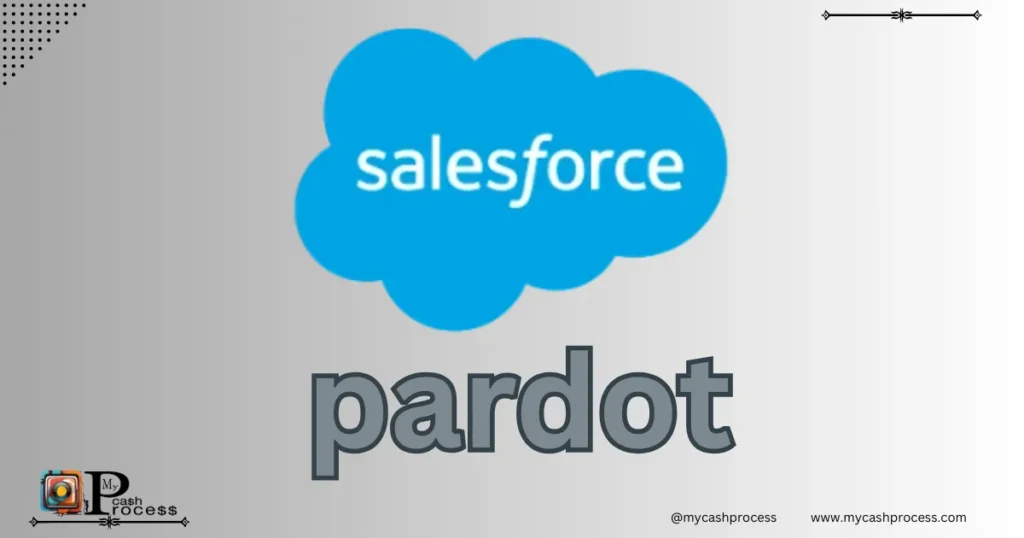Introduction
In today’s competitive business world, companies must harness the power of technology to streamline their operations and stay ahead of the curve. A marketing automation specialist plays a vital role in this digital transformation by implementing sophisticated tools and strategies that help businesses automate repetitive tasks, engage with customers more efficiently, and ultimately increase revenue. But what does it take to become a successful M-automation specialist? And how can this role truly transform a business’s strategy?
This ultimate guide will walk you through everything you need to know about becoming a successful marketing automation specialist, covering essential topics like what is Pardot, Pardot marketing automation, and the differences between Marketing Cloud vs Pardot. We will also explore how these tools, under the expertise of a skilled specialist, can help companies achieve greater efficiency, improved customer engagement, and substantial growth. Let’s dive into the core elements of this dynamic field.
Quick Access Guide
In today’s fast-paced digital world, businesses are continually seeking ways to optimize their marketing strategies for better results. Marketing automation has emerged as a game-changing tool, enabling companies to streamline their processes, enhance customer relationships, and drive measurable growth. As organizations scale, the need for specialized knowledge and technical expertise in this field becomes crucial. Professionals in this domain help businesses navigate complex automation tools and implement strategies that foster success across multiple channels.
One of the most powerful aspects of automation is its ability to deliver data-driven insights. By utilizing analytics from various marketing platforms, professionals are able to refine strategies, optimize campaigns, and make smarter decisions. This data-driven approach empowers businesses to stay competitive in an ever-evolving marketplace, ensuring that every action is based on real-time information rather than guesswork. From understanding customer behavior to evaluating campaign performance, the strategic use of data helps businesses create more personalized and impactful marketing efforts, resulting in increased customer satisfaction and enhanced ROI.
The Role of a Marketing Automation Specialist in Modern Businesses
Brief Introduction to Marketing Automation and Its Impact
The digital age has made it essential for businesses to scale their operations in a way that allows them to meet the needs of a larger audience without sacrificing quality. This is where marketing automation comes in. By automating repetitive tasks, marketing professionals can focus on creative strategies and customer engagement, which is crucial in maintaining a competitive edge.
A marketing automation specialist is responsible for implementing, optimizing, and maintaining automation systems that help streamline marketing efforts. These professionals work with advanced tools like Pardot marketing automation to ensure that businesses can run campaigns efficiently and accurately. From managing lead generation to nurturing customer relationships, a marketing automation specialist ensures the success of automated marketing campaigns by continuously optimizing them.
What Does a Marketing Automation Specialist Do?
A marketing automation specialist is the key driver of a business’s automation efforts. The primary goal of this role is to improve efficiency, cut down manual efforts, and enhance marketing campaigns’ performance. The specialist works across various platforms to set up and optimize automation systems.
Core Responsibilities
- Campaign Management: The marketing automation specialist designs and executes automated campaigns aimed at customer acquisition and retention. This includes email campaigns, lead nurturing sequences, and personalized marketing strategies.
- Tool Integration: Integration with different marketing tools is a crucial responsibility. Whether it’s connecting a CRM system with Pardot marketing automation or integrating a website with marketing automation tools, the specialist ensures all systems work together seamlessly.
- Data Analysis and Reporting: By analyzing data from marketing campaigns, specialists can optimize future strategies. This includes reporting on KPIs like engagement, conversion rates, and return on investment (ROI).
- Customer Segmentation: Targeting the right audience is critical. M-automation specialists use tools like Pardot to segment customers based on behavior, demographics, and purchasing history, allowing for more tailored messaging.
Understanding Marketing Automation: The Foundation of Success
What is Pardot and Its Significance?
When discussing marketing automation, Pardot is one of the most widely used platforms. Developed by Salesforce, Pardot is a robust marketing automation tool designed to help businesses nurture leads and drive conversions.
Pardot marketing automation allows businesses to automate many marketing tasks, such as email marketing, lead nurturing, and campaign management. The platform is designed to integrate with Salesforce’s CRM, enabling businesses to gain insights into customer behavior and interaction, streamlining the process of converting leads into customers.
A marketing automation specialist must have deep knowledge of Pardot, understanding its features, capabilities, and best practices to maximize its potential.
Key Features of Pardot Marketing Automation
Here are some key features of Pardot that make it an indispensable tool for a marketing automation specialist:
- Lead Scoring: Pardot offers the ability to score leads based on their behavior, such as email opens, clicks, website visits, and social media interactions. This helps prioritize leads and focus efforts on the most promising prospects.
- Email Automation: Creating automated email workflows that engage leads with timely and relevant content. Pardot marketing automation makes it easy to send personalized emails based on user actions.
- CRM Integration: Integration with Salesforce CRM ensures that data flows smoothly between marketing and sales teams. This provides a comprehensive view of the customer journey.
- Landing Pages and Forms: Pardot enables the creation of customized landing pages and forms to capture lead information and track user engagement.
- Analytics and Reporting: The ability to track campaign performance in real-time, offering actionable insights for continuous optimization.
The Key Benefits of Hiring a Marketing Automation Specialist
Streamlining Marketing Processes
One of the primary benefits of hiring a marketing automation specialist is the ability to streamline marketing operations. By automating routine tasks like email marketing, lead scoring, and social media posting, businesses can free up valuable resources that can be better utilized for strategy and creative work.
For example, an automation specialist using Pardot marketing automation can create automated workflows that follow up with potential leads after they’ve interacted with a company’s website, allowing sales teams to focus on closing deals.
Increased Lead Conversion Rates
Effective lead conversion is a key goal of marketing automation, and a specialist is instrumental in ensuring that automation workflows are optimized for this purpose. A m-automation specialist analyzes customer behavior, segments leads, and designs automated nurturing campaigns that guide leads through the sales funnel.
With Pardot marketing automation, specialists can develop a system that tracks lead activity and sends timely, personalized messages to convert these leads into customers. This system reduces manual intervention, increasing the chances of converting leads at the right time.
Optimizing Marketing ROI
By automating repetitive tasks and improving the targeting of marketing campaigns, a marketing automation specialist helps companies maximize their marketing ROI. Through the use of platforms like Pardot, businesses can allocate resources more efficiently, ensuring that every dollar spent on marketing provides the highest possible return.
Pardot Marketing Automation: A Powerful Tool for Businesses
Key Functionalities of Pardot in Marketing Automation
Pardot is one of the leading marketing automation tools used by businesses worldwide. It offers powerful features that help businesses drive successful marketing campaigns, improve lead nurturing, and build stronger relationships with customers. Some of the most impactful functionalities include:
- Lead Nurturing: Automating follow-up emails and messages to guide leads through the sales funnel.
- Lead Scoring and Grading: Prioritizing leads based on their likelihood to convert.
- Dynamic Content: Personalizing content based on user behavior or demographic data.
- Advanced Reporting: Using built-in analytics to track and optimize campaign performance.
How Pardot Integrates with Your Business Strategy
A marketing automation specialist can integrate Pardot seamlessly into a business’s overall marketing strategy. By aligning Pardot marketing automation with sales and customer service teams, businesses can achieve greater alignment across departments. This creates a unified customer experience from lead acquisition to customer retention.
Marketing Cloud vs Pardot: Which One Is Right for Your Business?
Overview of Marketing Cloud vs Pardot
When choosing between Marketing Cloud vs Pardot, businesses need to understand the strengths of each platform. While both tools offer marketing automation capabilities, they cater to different needs.
- Pardot is ideal for businesses that are primarily focused on B2B marketing and lead generation. It offers robust features for nurturing leads, integrating with Salesforce, and automating email campaigns.
- Marketing Cloud, on the other hand, is better suited for B2C businesses looking for an advanced tool to engage with customers across multiple channels. It excels in customer journey mapping, email marketing, and social media engagement.
How a M-Automation Specialist Uses Pardot for Maximum Impact
The Specialist’s Role in Leveraging Pardot Marketing Automation
A marketing automation specialist is essential for ensuring that Pardot is used to its full potential. Specialists are responsible for setting up automated campaigns, creating dynamic content, managing lead scoring, and continuously analyzing performance. Their expertise ensures that businesses can achieve maximum results from their Pardot marketing automation efforts.
Enhancing Customer Relationships Through Marketing Automation
Building Personalized Customer Journeys
One of the most significant advantages of marketing automation is the ability to create personalized customer journeys. With platforms like Pardot marketing automation, a m-utomation specialist can design workflows that respond to a customer’s actions, preferences, and behaviors.
For instance, if a lead downloads an eBook from a company’s website, a marketing automation specialist can set up an automated sequence that sends them a series of relevant follow-up emails, personalized offers, or additional resources. This ensures the customer feels valued and understood, leading to increased trust and loyalty.
Additionally, Pardot marketing automation allows the specialist to automate personalized offers based on customer behavior. Whether it’s targeting leads who have abandoned their shopping carts or sending timely reminders to customers, these actions help nurture relationships and guide customers through their buying decisions.
Using Data Analytics to Improve Customer Engagement
Data is the backbone of any successful marketing strategy, and Pardot marketing automation provides a wealth of insights to enhance customer engagement. A m-automation specialist can track key metrics such as email open rates, click-through rates, and conversion rates to optimize campaigns.
By analyzing this data, specialists can segment audiences more effectively, fine-tune messaging, and adjust strategies to improve engagement levels. With Pardot, the specialist can use predictive analytics to identify the most engaged customers and those who are at risk of disengaging, allowing for timely interventions.
Future Trends in Marketing Automation and the Role of the Specialist
Key Trends to Watch in the Future of Marketing Automation
As technology continues to evolve, so too does the field of marketing automation. Here are some key trends that marketing automation specialists should be prepared for in the coming years:
- AI and Machine Learning: These technologies are rapidly being integrated into marketing automation platforms like Pardot. The use of AI can enhance lead scoring, optimize content recommendations, and improve customer segmentation. Specialists will need to learn how to leverage these technologies to maximize their effectiveness.
- Omnichannel Marketing: As consumers engage with businesses across various platforms, marketers are turning to omnichannel strategies. This involves creating consistent experiences across email, social media, websites, and more. A m-automation specialist will need to ensure that all channels are integrated and synchronized for maximum impact.
- Voice Search and Smart Assistants: With the growing use of voice-activated devices, optimizing marketing strategies for voice search will become increasingly important. Marketing automation specialists will need to consider voice interactions and how to integrate them into their strategies.
- Personalization at Scale: As businesses continue to rely on automation, the demand for personalized experiences at scale will rise. The challenge for marketing automation specialists will be to create more nuanced and individualized journeys for customers without compromising the efficiency of automation.
Evolving Responsibilities of a Marketing Automation Specialist
The role of a marketing automation specialist is continually evolving. As new tools and technologies emerge, specialists must adapt to stay ahead. Future responsibilities may include:
- Leading AI-powered marketing initiatives
- Managing cross-platform integrations
- Enhancing customer journey mapping through omnichannel strategies
- Managing and analyzing more complex data sets
As automation becomes even more integrated into marketing strategies, the marketing automation specialist will take on a strategic role in business growth, ensuring that automated processes are continuously optimized and aligned with overall business objectives.
The Role of Analytics in Marketing Automation
Unlocking Insights to Drive Success
Data analytics is a cornerstone of effective marketing automation. A marketing automation specialist not only sets up campaigns but also continuously analyzes key performance indicators (KPIs) to ensure the success of marketing initiatives. By utilizing analytics tools, specialists can track metrics like click-through rates, email open rates, and conversion rates to gain valuable insights into how well campaigns are performing.
One of the main advantages of Pardot marketing automation is its built-in reporting and analytics capabilities, which allow specialists to access real-time data. By evaluating performance, specialists can tweak workflows, adjust messaging, and refine targeting to enhance overall marketing effectiveness. With predictive analytics, specialists can also anticipate customer behavior, leading to more timely and relevant interactions with leads.
Turning Data into Actionable Strategies
Effective use of analytics requires more than just collecting data—it involves transforming it into actionable strategies. With a strong analytical foundation, a marketing automation specialist can:
- Refine Customer Segments: Analytics can help specialists create more granular customer segments, improving targeting accuracy.
- Optimize Campaigns: Real-time tracking allows specialists to adjust campaigns on the fly, ensuring better performance.
- Improve Lead Scoring: Using data to evaluate lead behavior enables specialists to prioritize leads more effectively, ensuring resources are allocated efficiently.
By utilizing insights from data analytics, a m-automation specialist ensures that marketing campaigns are not only more efficient but also more effective in generating tangible results.
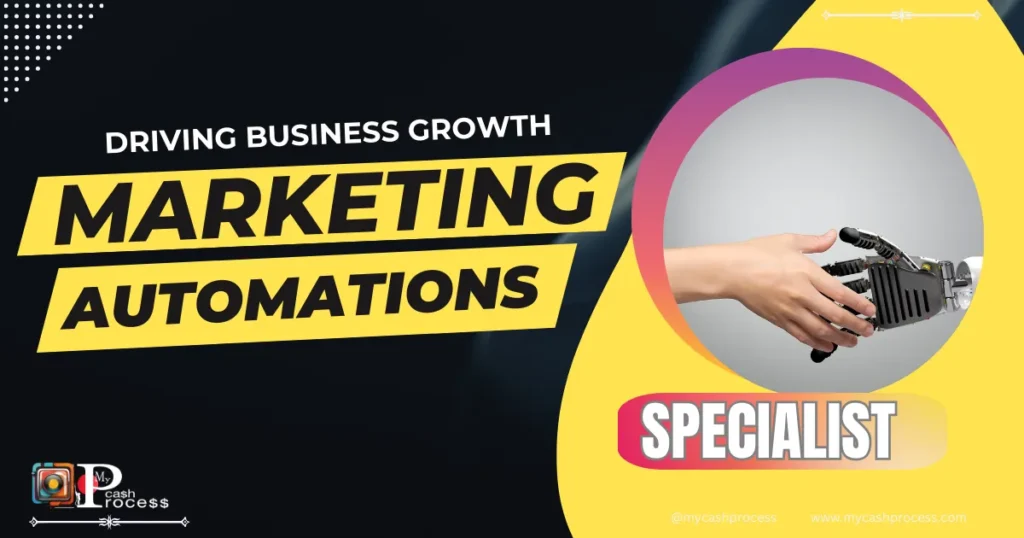
Marketing Automation and Customer Retention
Building Long-Term Relationships
Marketing automation isn’t just about acquiring new customers; it’s also about retaining the ones you have. A marketing automation specialist plays a key role in designing retention strategies that keep customers engaged and loyal over time. Retention strategies involve personalized communication, timely follow-ups, and targeted offers that resonate with customers even after they have made their first purchase.
Using Pardot marketing automation, specialists can set up long-term engagement workflows that nurture customer relationships. These workflows can include thank-you emails, personalized product recommendations, or customer satisfaction surveys, all of which contribute to building trust and encouraging repeat business.
Automating Customer Loyalty Programs
An essential part of customer retention is having a structured loyalty program. A marketing automation specialist can leverage Pardot marketing automation to set up automated loyalty programs that reward customers for their repeat business. By tracking customer purchases and interactions, specialists can send personalized rewards or offers that keep customers coming back for more.
Additionally, automated messages or exclusive offers for loyal customers can be sent at key moments in their lifecycle, further strengthening the relationship between the customer and the brand. As specialists track and analyze customer behaviors, they can refine loyalty programs to increase retention and reduce churn.
Integrating Marketing Automation Across All Channels
Creating a Seamless Experience
A key aspect of marketing automation is ensuring a seamless, consistent experience for customers across all digital touchpoints. A marketing automation specialist is responsible for integrating automation tools like Pardot marketing automation into various marketing channels, such as email, social media, paid ads, and content marketing, to create a cohesive marketing strategy.
By automating across multiple platforms, specialists can ensure that the right message reaches the right customer at the right time. Automation allows for uniformity in messaging and personalization, which fosters trust and engagement with customers.
Channel-Specific Strategies
Different marketing channels have unique requirements and best practices, so it’s crucial for specialists to customize automation strategies for each. For example:
- Email Automation: Sending automated follow-ups, reminders, or newsletters based on customer behavior.
- Social Media Automation: Scheduling posts and automating social media campaigns to maintain engagement while reaching a larger audience.
- Paid Advertising Automation: Using automation tools to optimize bids and targeting for ads in real-time, based on the customer journey.
By integrating Pardot marketing automation across all channels, a marketing automation specialist creates a more streamlined and effective marketing process, ensuring every touchpoint is optimized and working towards the same goal.
Scaling Your Marketing Efforts with Automation
Efficiently Managing Growing Demand
As businesses grow, so does the complexity of marketing efforts. A marketing automation specialist plays a vital role in ensuring that as your marketing initiatives scale, they remain efficient and effective. Automation enables businesses to handle increased customer interactions, larger lead volumes, and more complex campaigns without a proportional increase in resources.
For growing companies, Pardot marketing automation is especially valuable, as it can easily scale with business needs. Specialists can set up workflows that handle increasing lead volumes, segment customers more effectively, and manage campaigns at scale without sacrificing personalization.
Optimizing for Scalability
Scaling marketing efforts with automation requires careful planning and optimization. Here’s how a marketing automation specialist ensures that automation remains scalable:
- Advanced Segmentation: Using automation to create more granular audience segments ensures personalized communication even at larger scales.
- Automated Campaigns: Specialists set up automated, multi-step campaigns that can be easily replicated and adjusted as the business grows.
- Continuous Optimization: As the business scales, specialists will monitor campaign performance and adjust workflows to maintain efficiency and effectiveness.
By utilizing Pardot marketing automation, specialists can confidently scale marketing efforts, keeping them cost-effective and aligned with business growth.
Enhancing Data-Driven Decision Making
Leveraging Analytics to Inform Strategy
In today’s digital landscape, data is the backbone of effective marketing strategies. Marketing automation tools offer extensive analytics that can provide key insights into customer behavior, campaign performance, and overall business impact. A marketing automation specialist utilizes these analytics to make informed decisions, optimize campaigns, and guide future strategies.
By leveraging the rich data collected through automation, businesses can better understand customer preferences, identify pain points, and predict future behavior. These insights allow specialists to adjust marketing tactics, messaging, and targeting to improve engagement and increase conversions.
Key Metrics for Effective Decision Making
When evaluating performance, specialists focus on a variety of metrics to determine success:
- Customer Engagement Rates: Understanding how customers are interacting with automated content and adjusting strategies to improve engagement.
- Conversion Metrics: Tracking lead-to-customer conversion rates helps to fine-tune the nurturing process and identify opportunities to increase conversions.
- ROI Analysis: Analyzing the return on investment for different marketing automation efforts ensures resources are being allocated effectively.
- Campaign Performance: Continuous monitoring of email, social media, and content campaigns allows specialists to make real-time adjustments and improve results.
Using automation analytics, specialists help businesses make smarter, more data-driven decisions, ensuring long-term growth and success.
Conclusion
Summary of How a Marketing Automation Specialist Can Transform Your Strategy
A marketing automation specialist is an invaluable asset for any business looking to enhance its marketing efforts. By leveraging Pardot marketing automation and other tools, specialists can streamline processes, improve lead conversion, and optimize ROI. Their expertise in designing automated workflows, integrating systems, and analyzing performance is crucial to building lasting relationships with customers and achieving business growth.
Incorporating marketing automation into your business strategy is no longer optional; it’s essential for staying competitive. Whether you’re working with Pardot or comparing Marketing Cloud vs Pardot, hiring a marketing automation specialist can be the key to unlocking your business’s full potential.
Warning
Common Mistakes Businesses Make Without a Marketing Automation Specialist
Many businesses attempt to implement marketing automation without the guidance of a marketing automation specialist, resulting in costly mistakes. Here are some common pitfalls:
- Failure to Segment Properly: Without proper segmentation, your marketing messages may not resonate with your audience. A marketing automation specialist ensures that the right message reaches the right customer at the right time.
- Lack of Integration: Marketing automation tools need to be integrated with other business systems, like CRMs. Without this, you risk losing valuable data and insights. A marketing automation specialist ensures everything works together seamlessly.
- Underutilizing Automation Features: Tools like Pardot marketing automation offer a wide array of features, but many businesses fail to take full advantage of them. A specialist will maximize the platform’s capabilities to drive results.
Risks of Using Outdated Tools Like Pardot or Marketing Cloud
While Pardot and Marketing Cloud are powerful tools, failing to update and optimize them can be risky. Using outdated versions or not keeping up with new features can lead to inefficiencies, missed opportunities, and diminished results. A marketing automation specialist ensures that your tools are always up-to-date and aligned with current trends.
Follow us on Pinterest, Twitter X, Facebook, Instagram, Quora, TikTok, Discord, YouTube, and WhatsApp Channel.
Advice
Tips on Selecting the Right Marketing Automation Specialist for Your Business
Hiring the right marketing automation specialist is crucial to ensuring the success of your marketing strategy. Here are some tips for selecting the best fit:
- Experience with Tools Like Pardot: Make sure the candidate has hands-on experience with platforms like Pardot marketing automation.
- Strong Analytical Skills: The specialist should be proficient in data analysis and reporting to optimize campaigns.
- Strategic Thinker: Look for someone who not only understands automation tools but also knows how to align them with your overall business goals.
Best Practices for Using Pardot Marketing Automation Effectively
To get the most out of Pardot marketing automation, follow these best practices:
- Maintain Data Quality: Regularly update your lead database to ensure accurate segmentation and targeting.
- Test and Optimize Campaigns: Continuously A/B test your emails, landing pages, and forms to improve conversion rates.
- Personalize Content: Leverage Pardot’s dynamic content features to tailor messaging to specific customer segments.
FAQs
-
What is Pardot and Why Is It Important for Marketing Automation?
Pardot is a marketing automation tool developed by Salesforce. It helps businesses automate and streamline their marketing efforts, including email campaigns, lead nurturing, and analytics. It’s essential for businesses looking to increase efficiency and conversion rates through automated processes.
-
How Does a Marketing Automation Specialist Integrate Pardot into Business Strategies?
A marketing automation specialist integrates Pardot marketing automation by setting up automated workflows, segmenting audiences, analyzing data, and continuously optimizing campaigns. They ensure that Pardot aligns with the business’s overall marketing strategy, driving success.
-
What is the Difference Between Marketing Cloud vs Pardot?
While both Marketing Cloud vs Pardot are marketing automation tools, Pardot is geared more toward B2B marketing with a focus on lead nurturing and CRM integration, while Marketing Cloud is a more comprehensive tool designed for B2C businesses, offering a wider array of features, including social media management and customer journey mapping.

